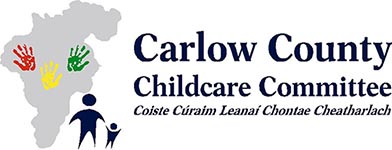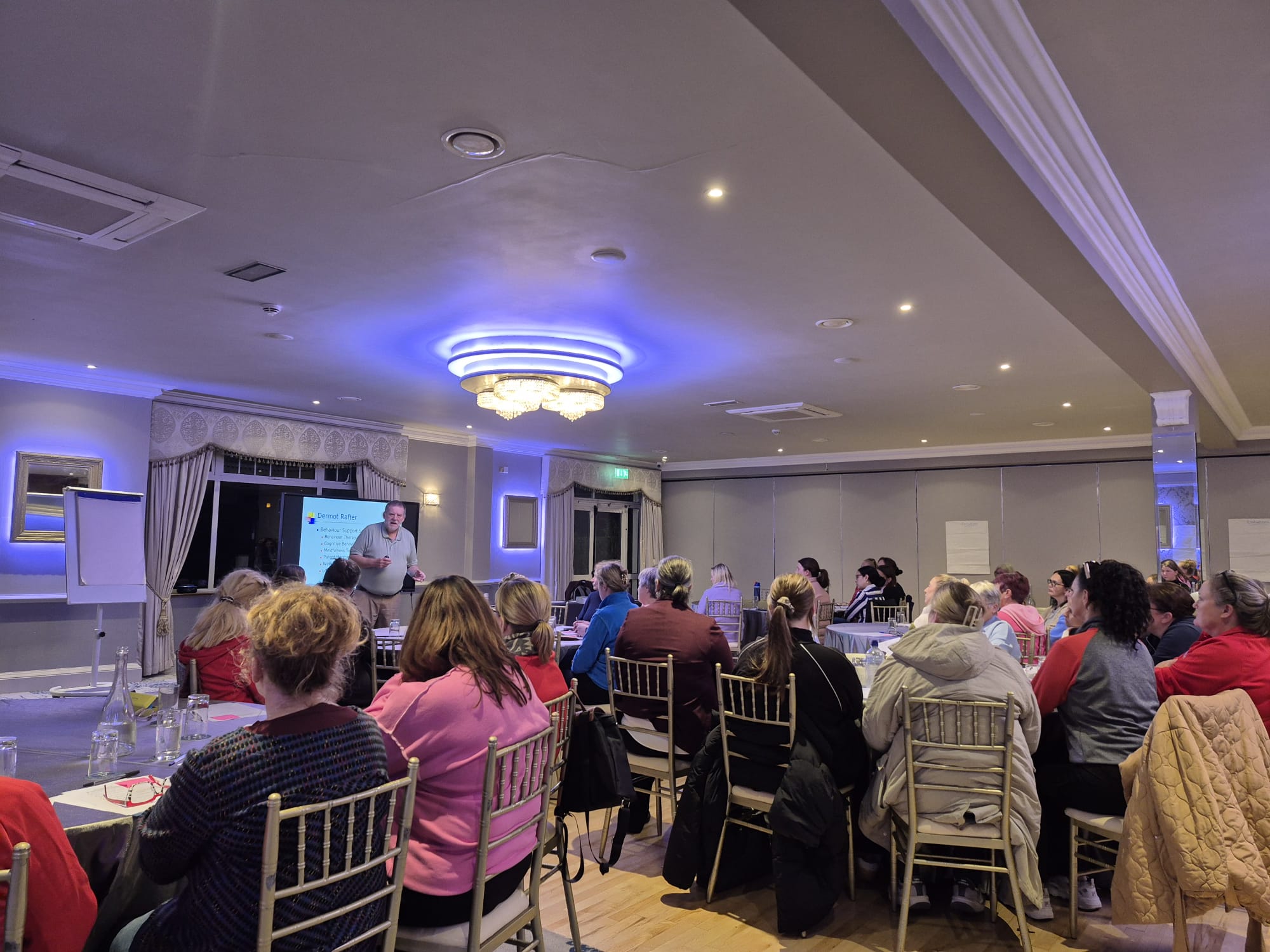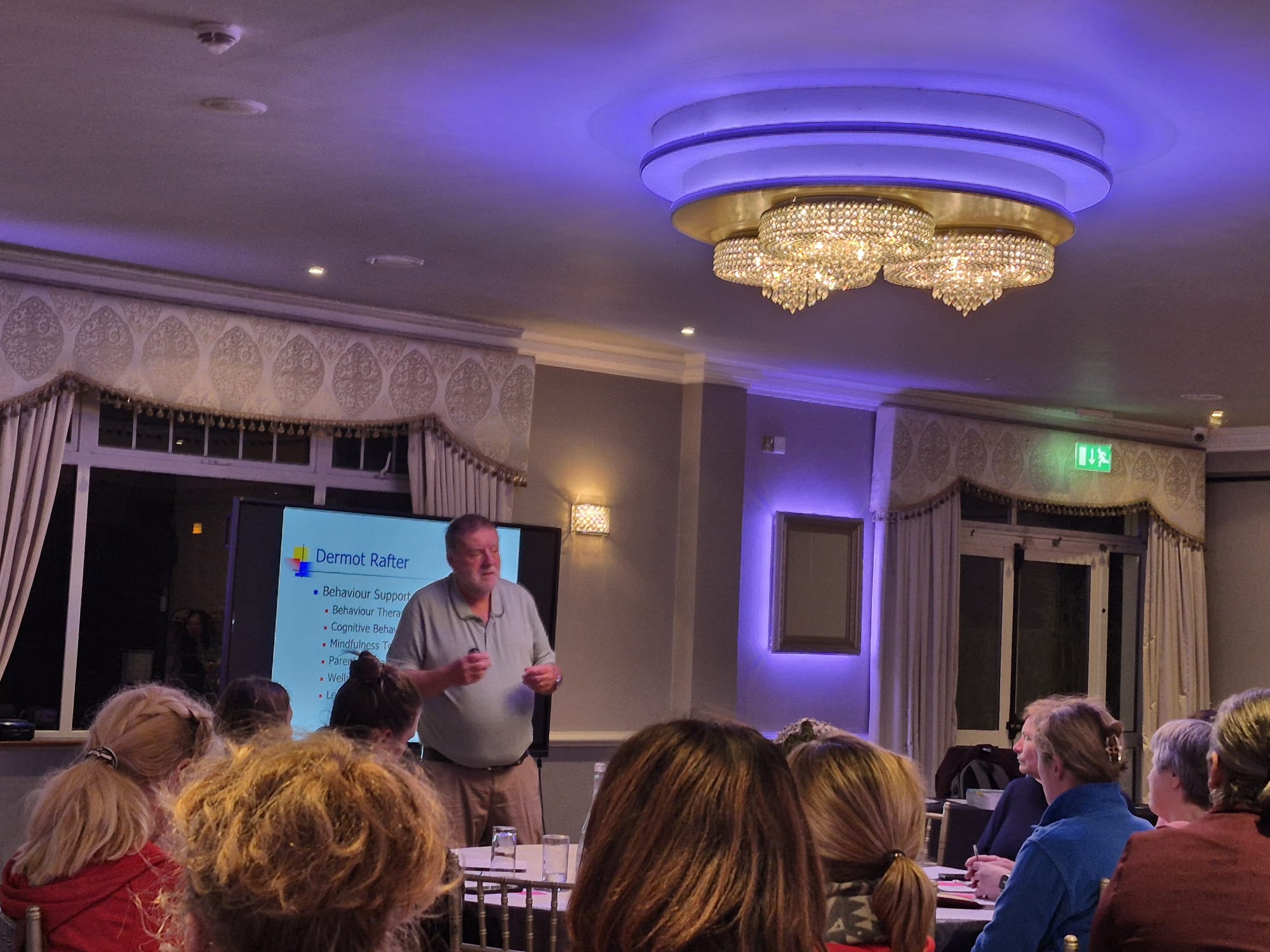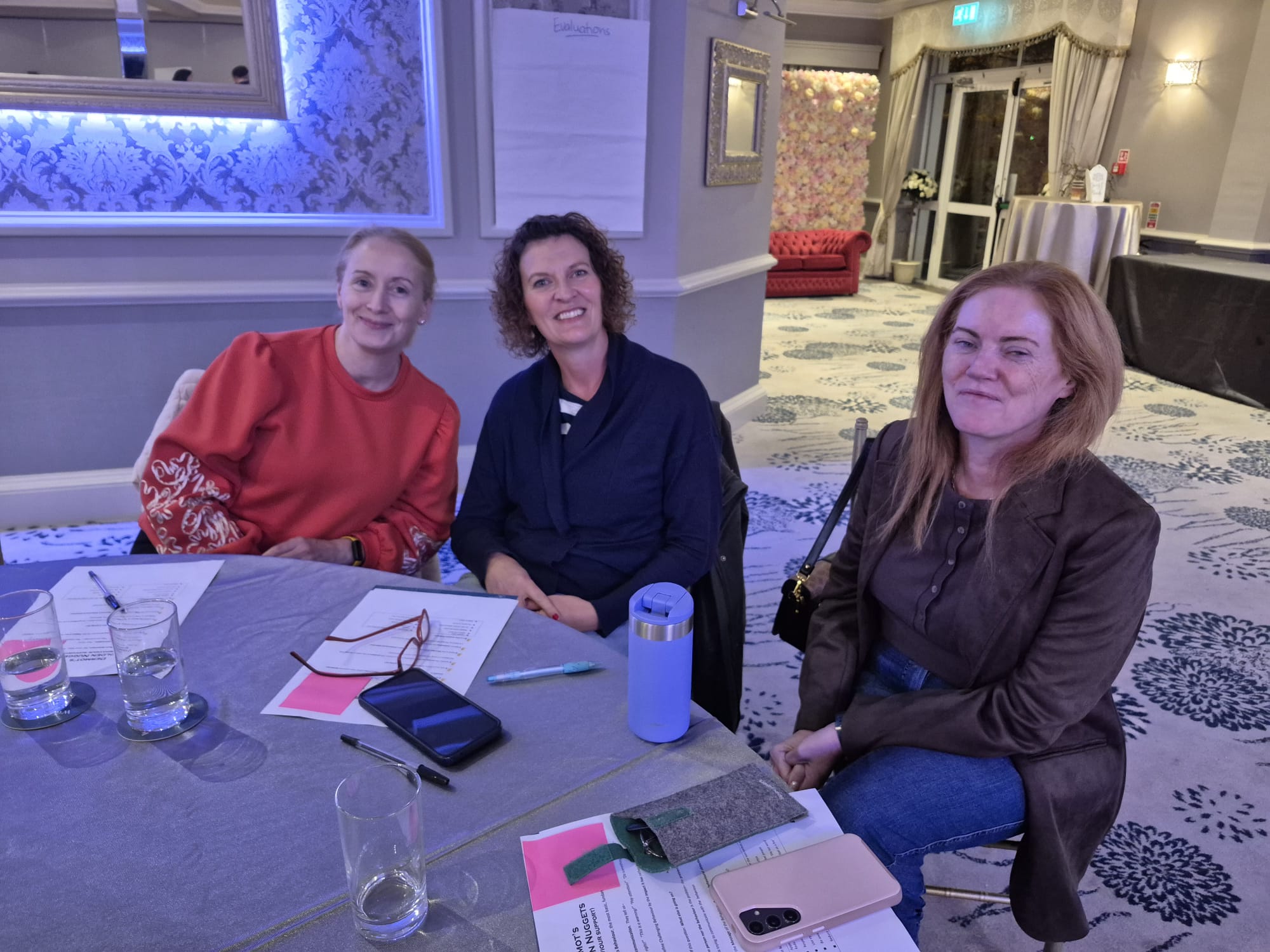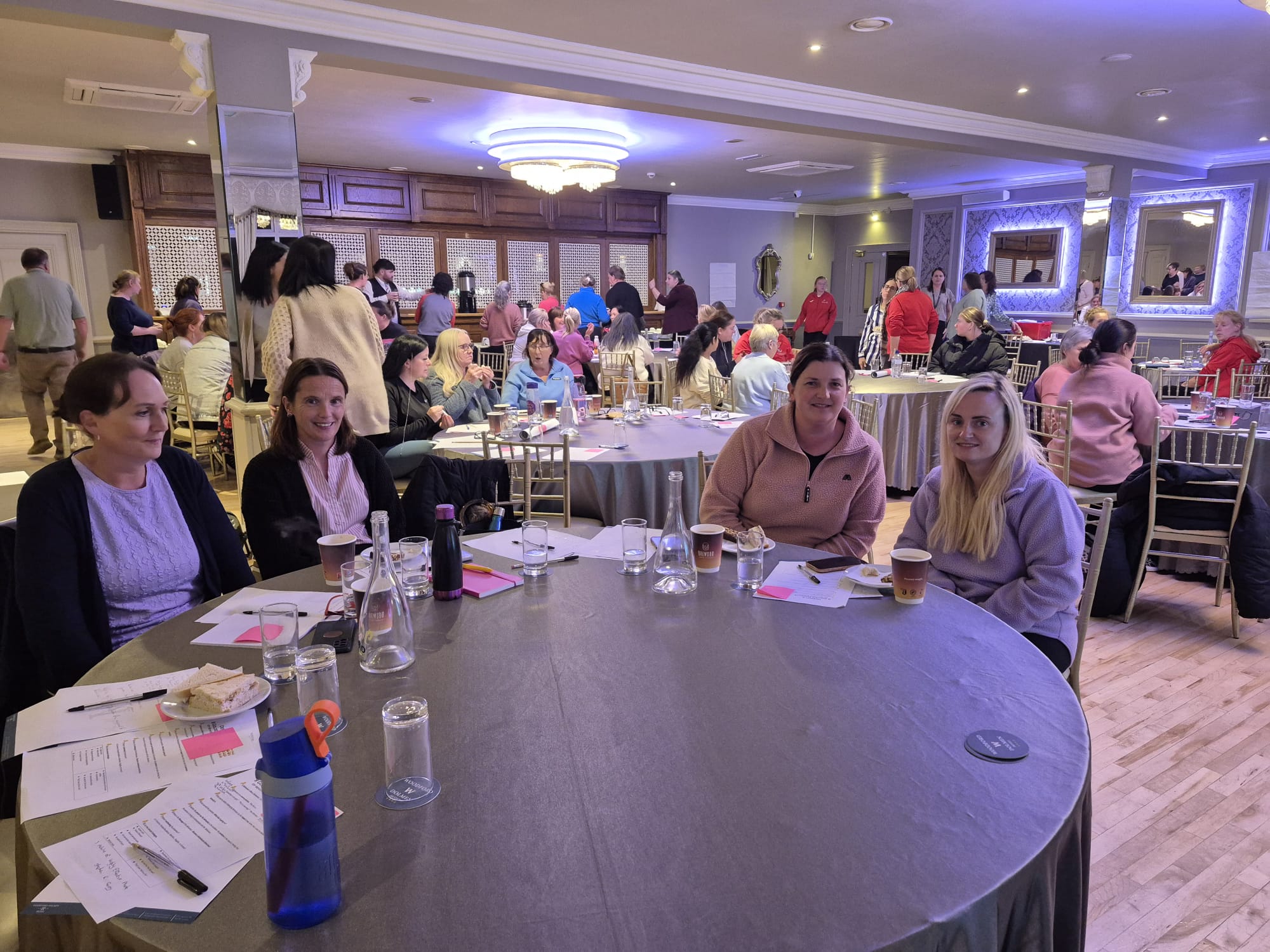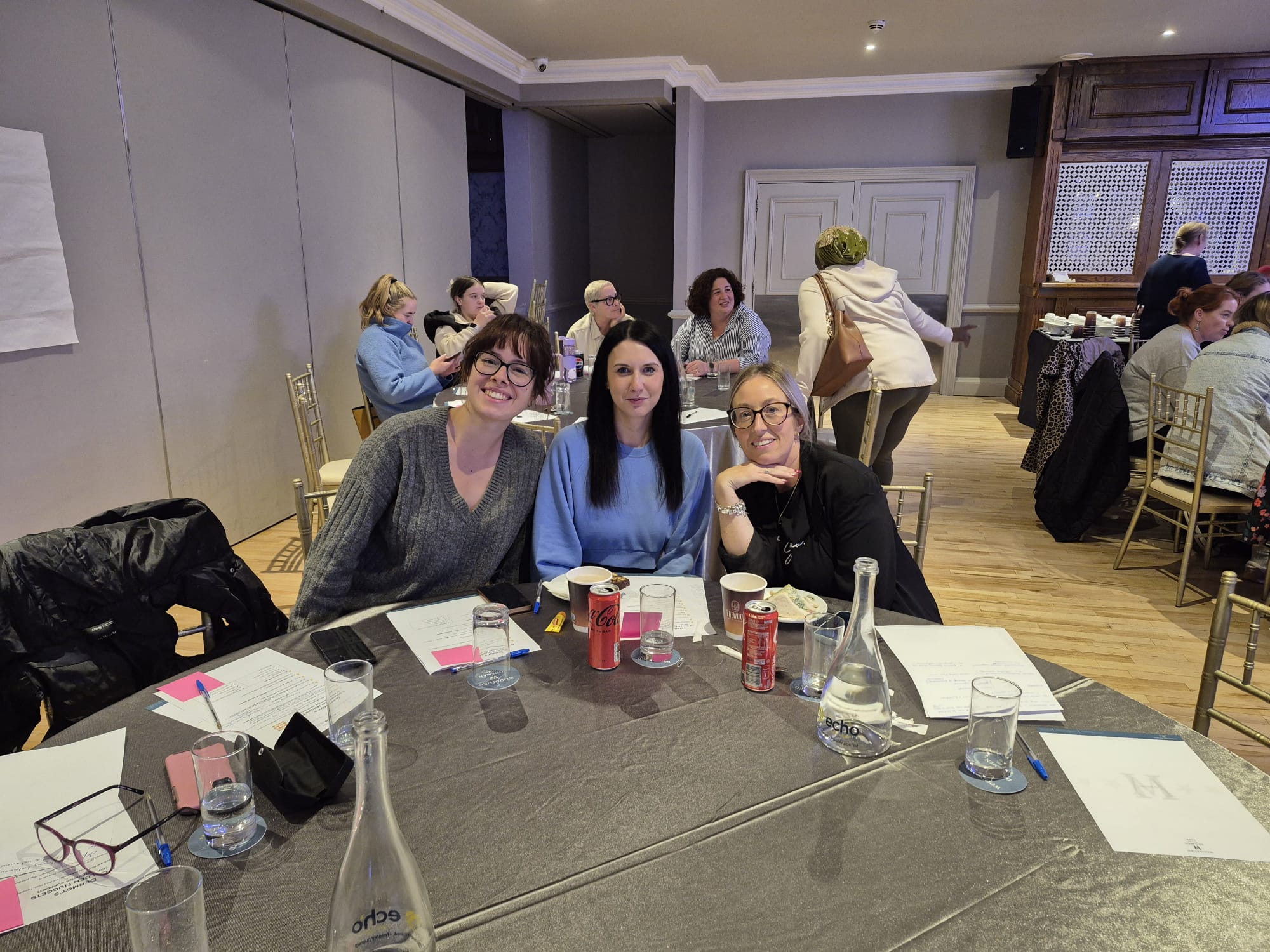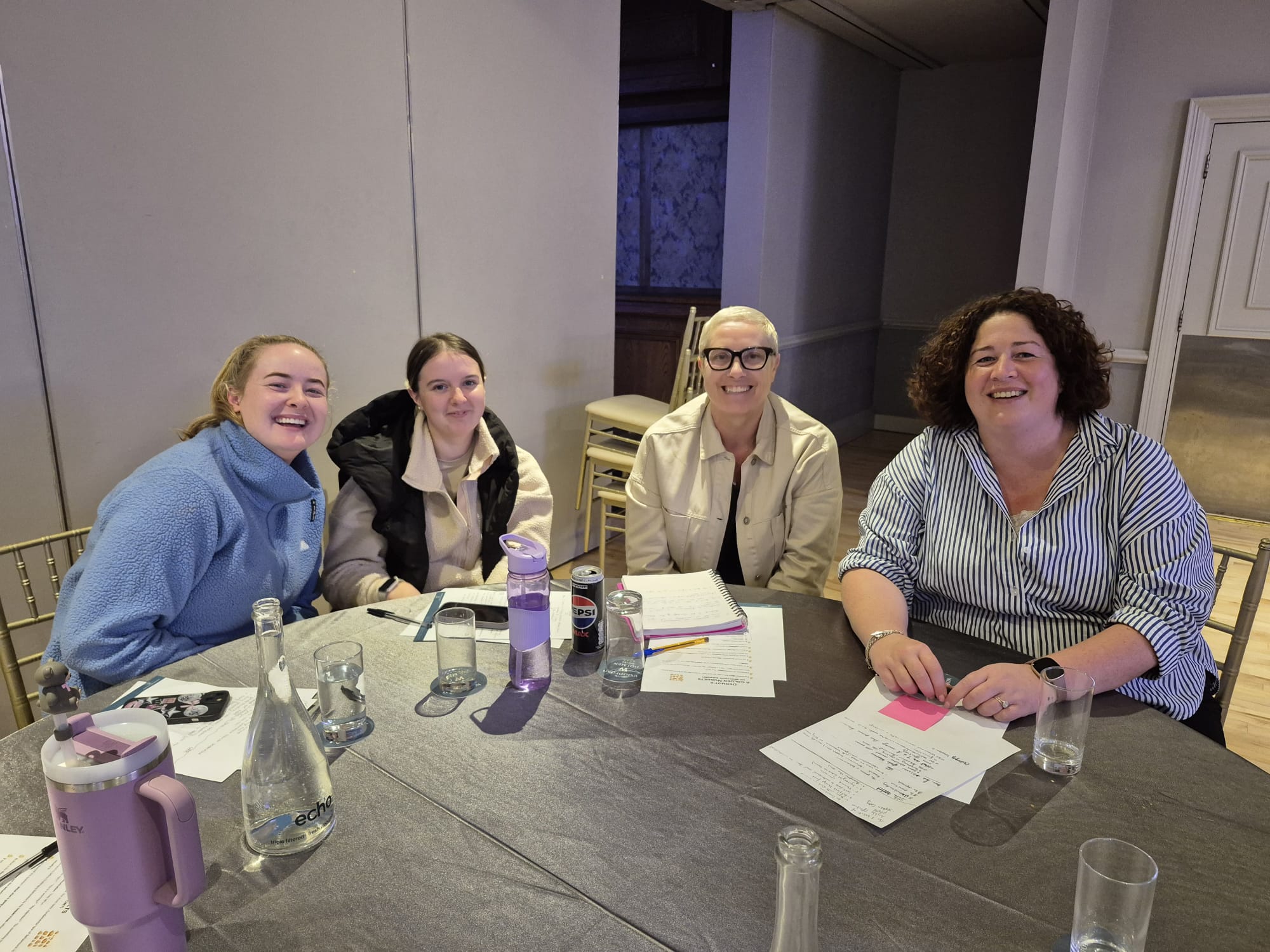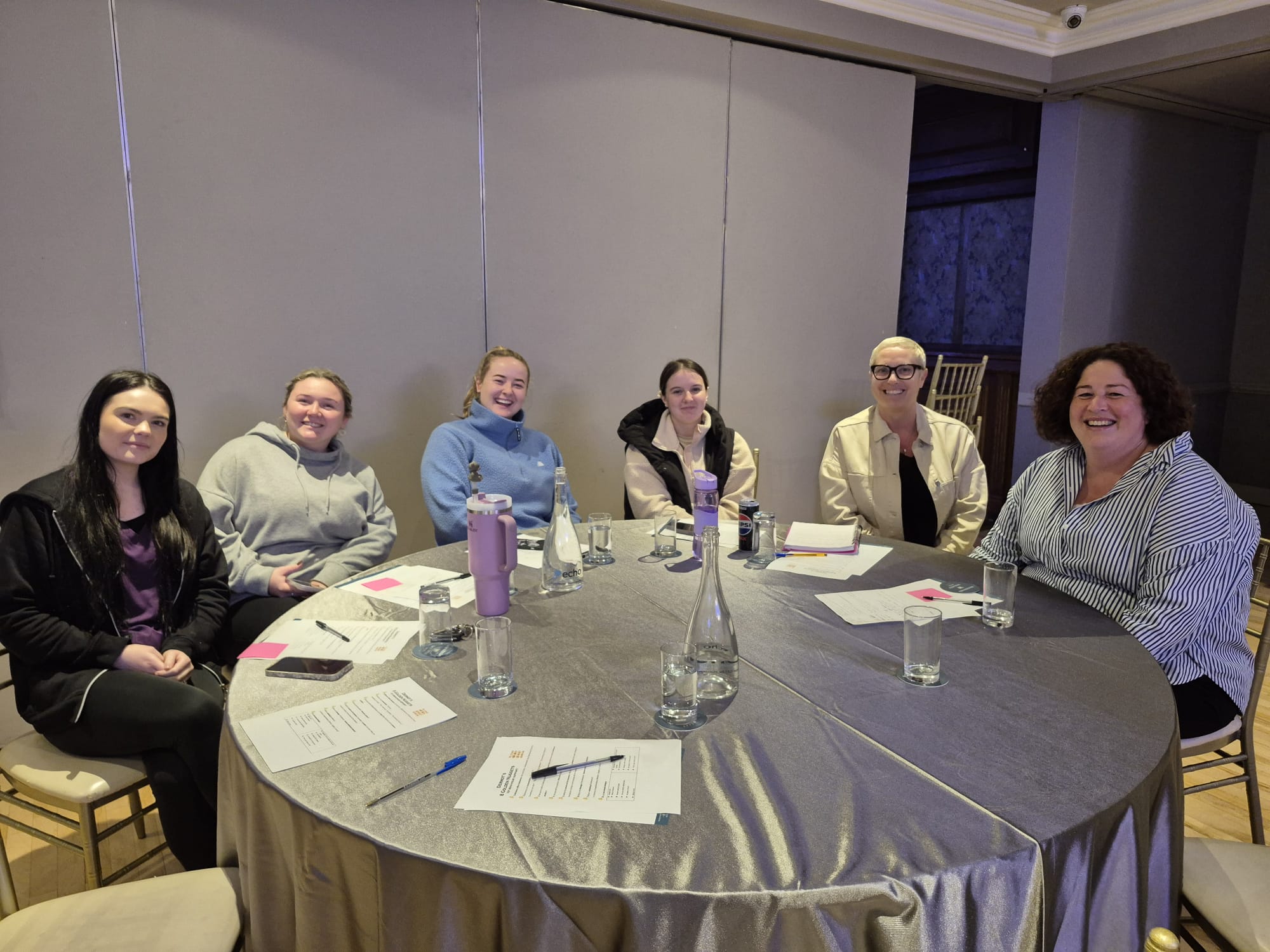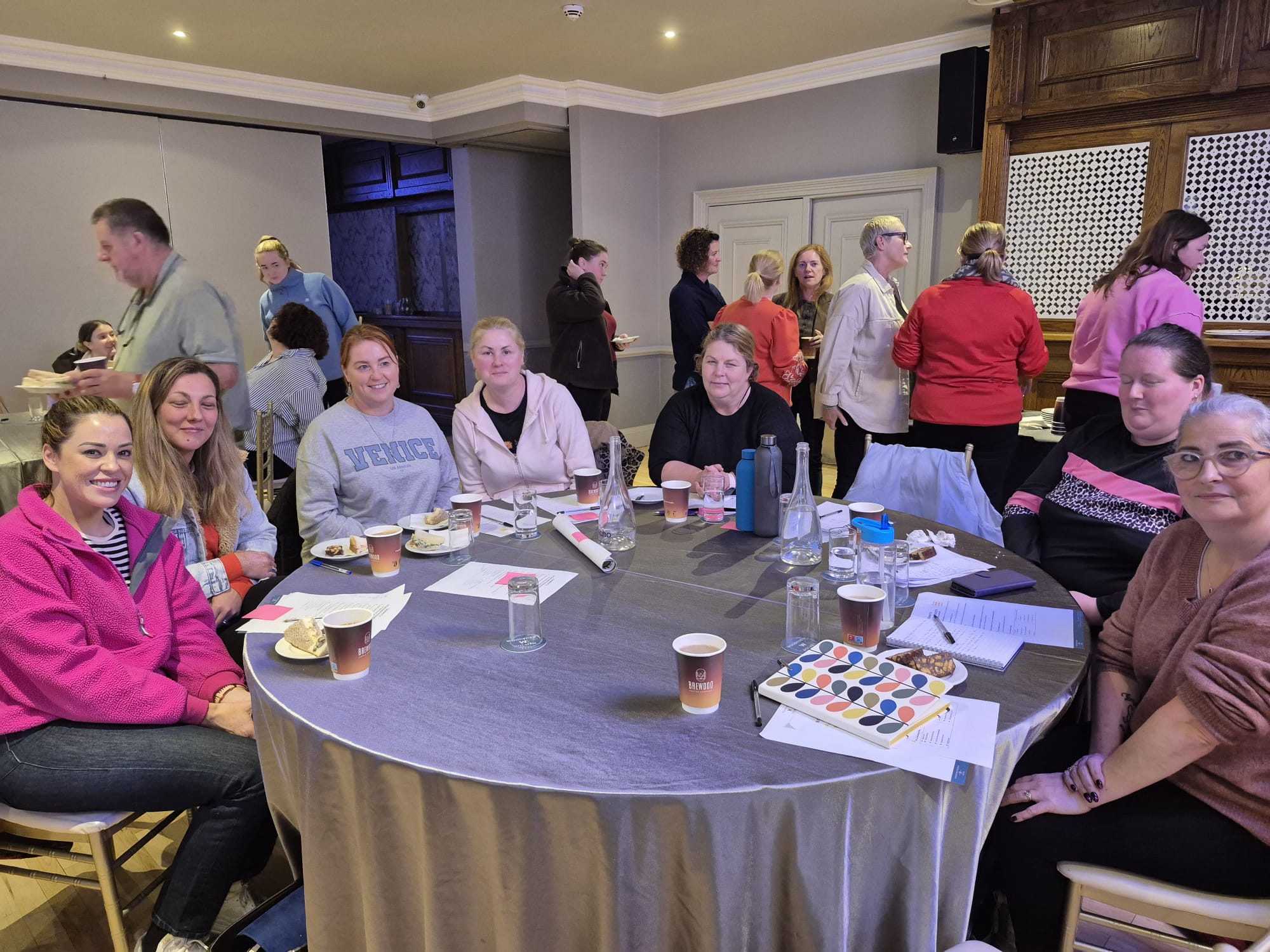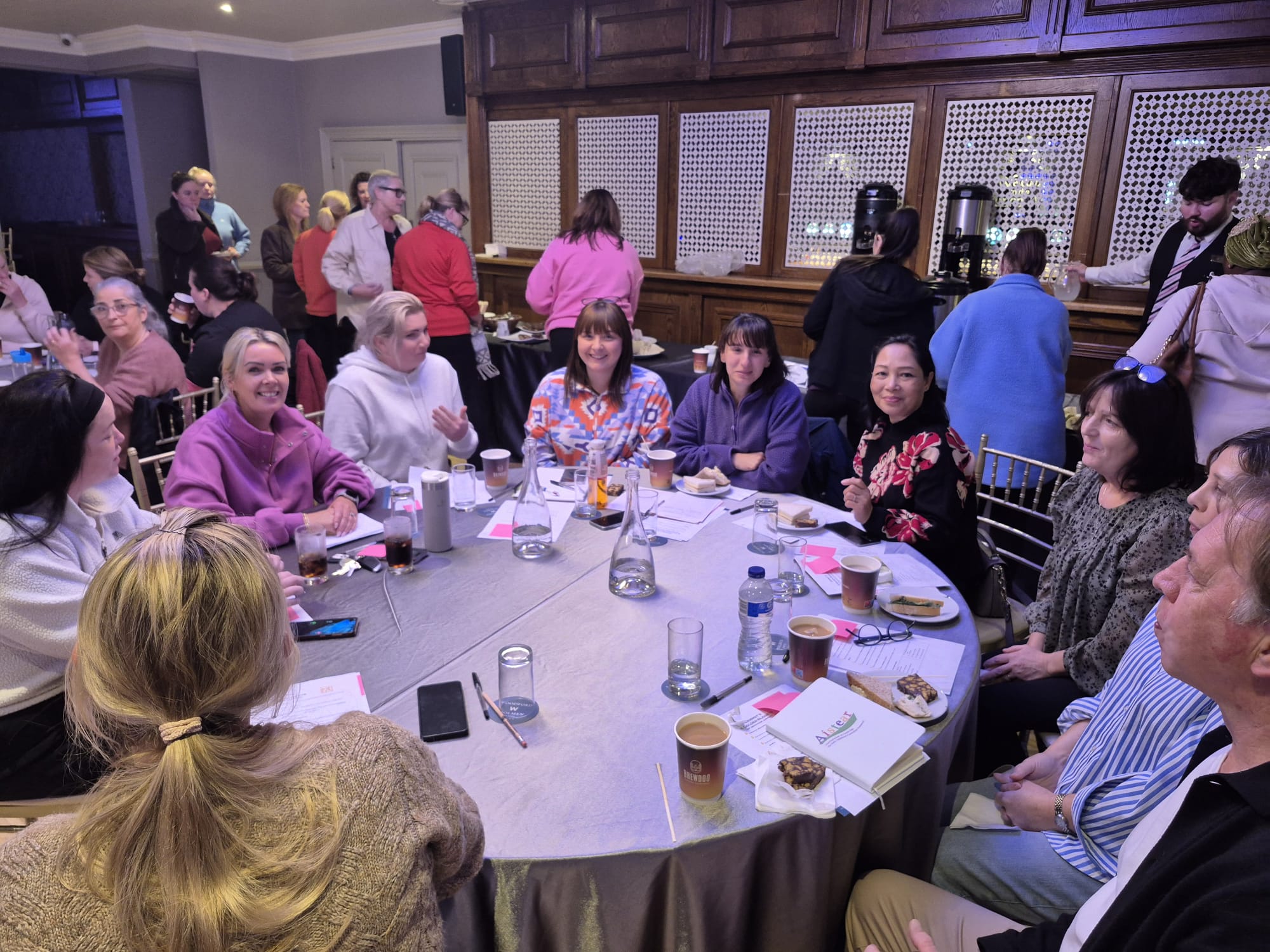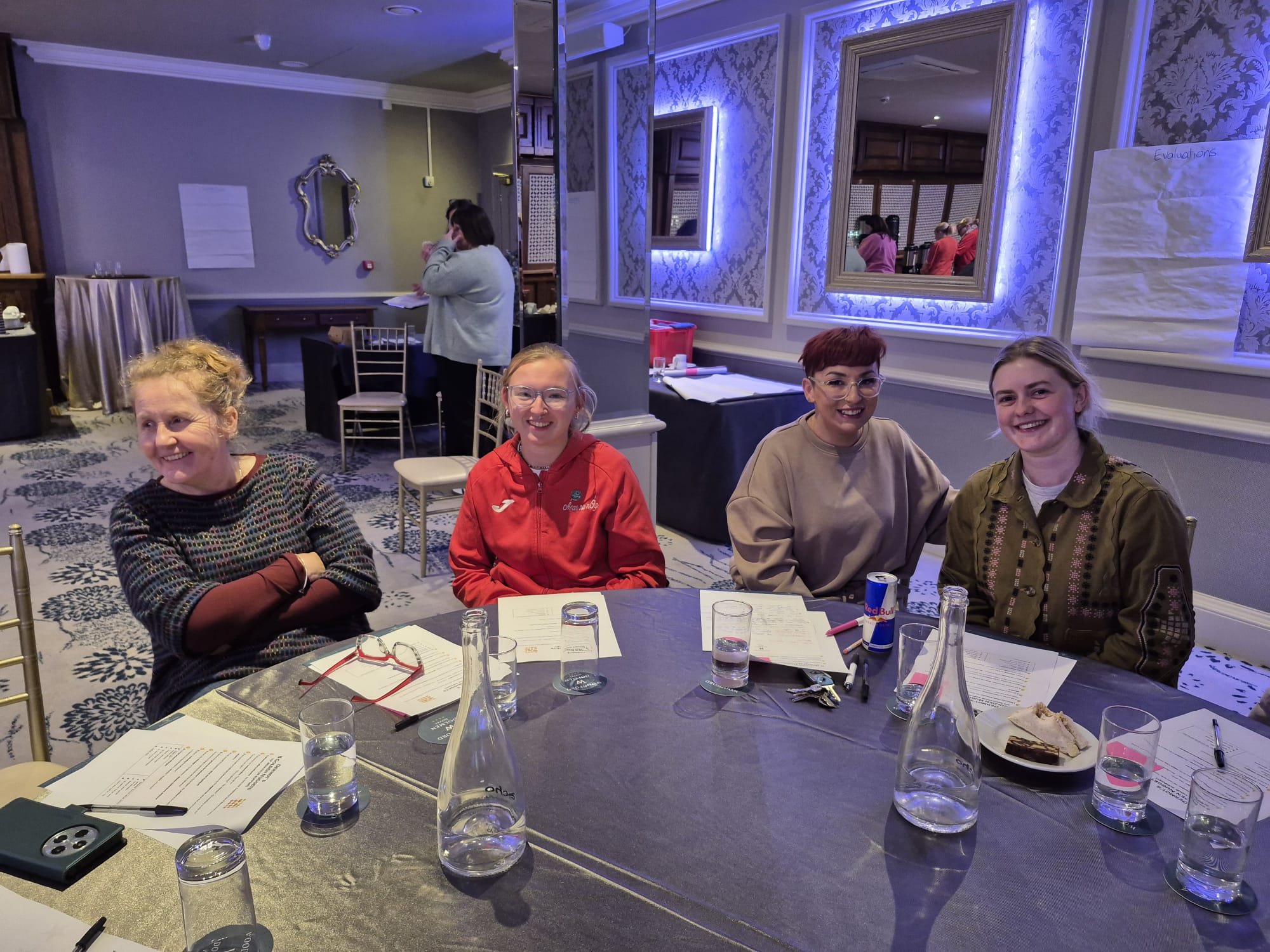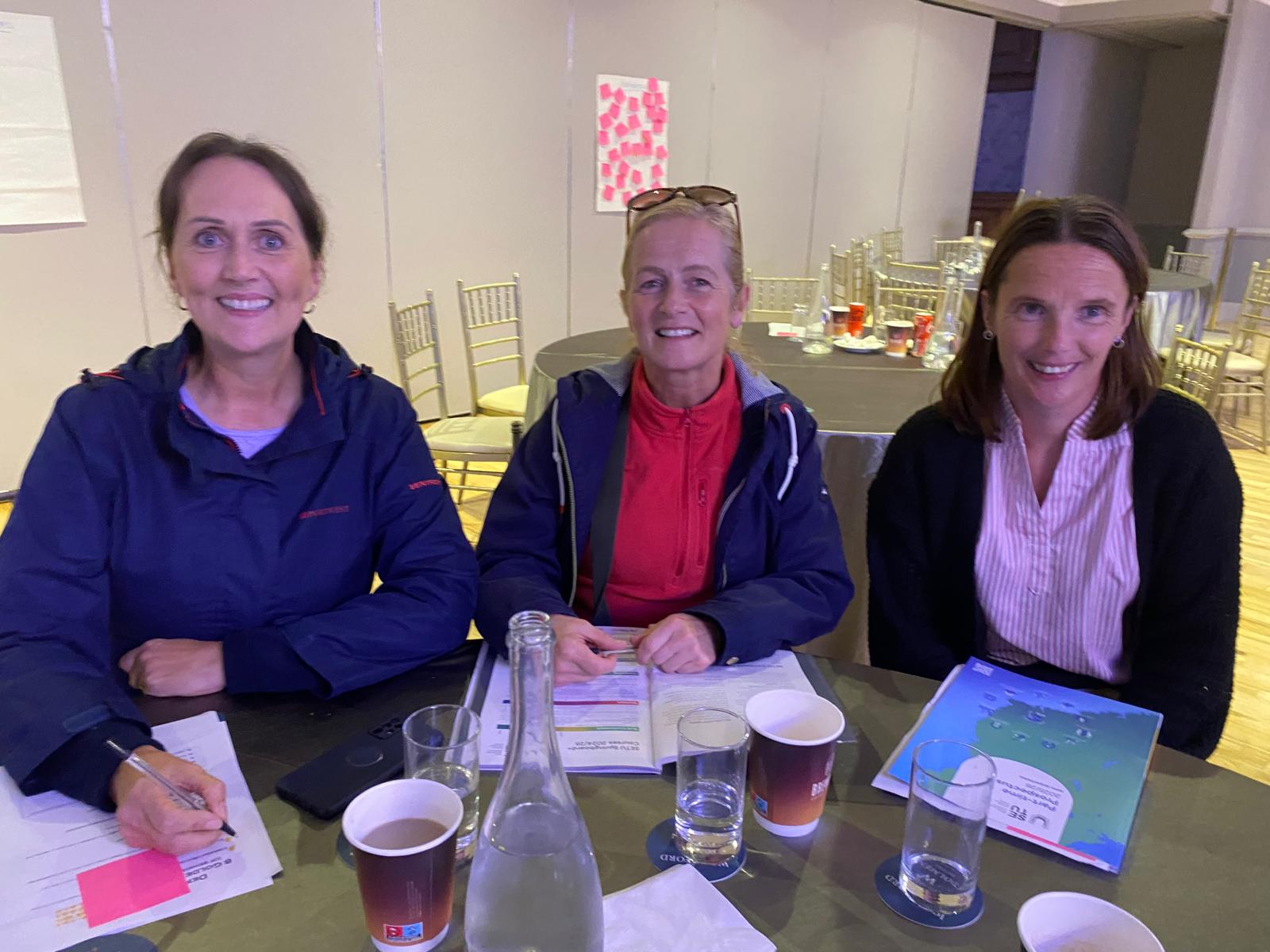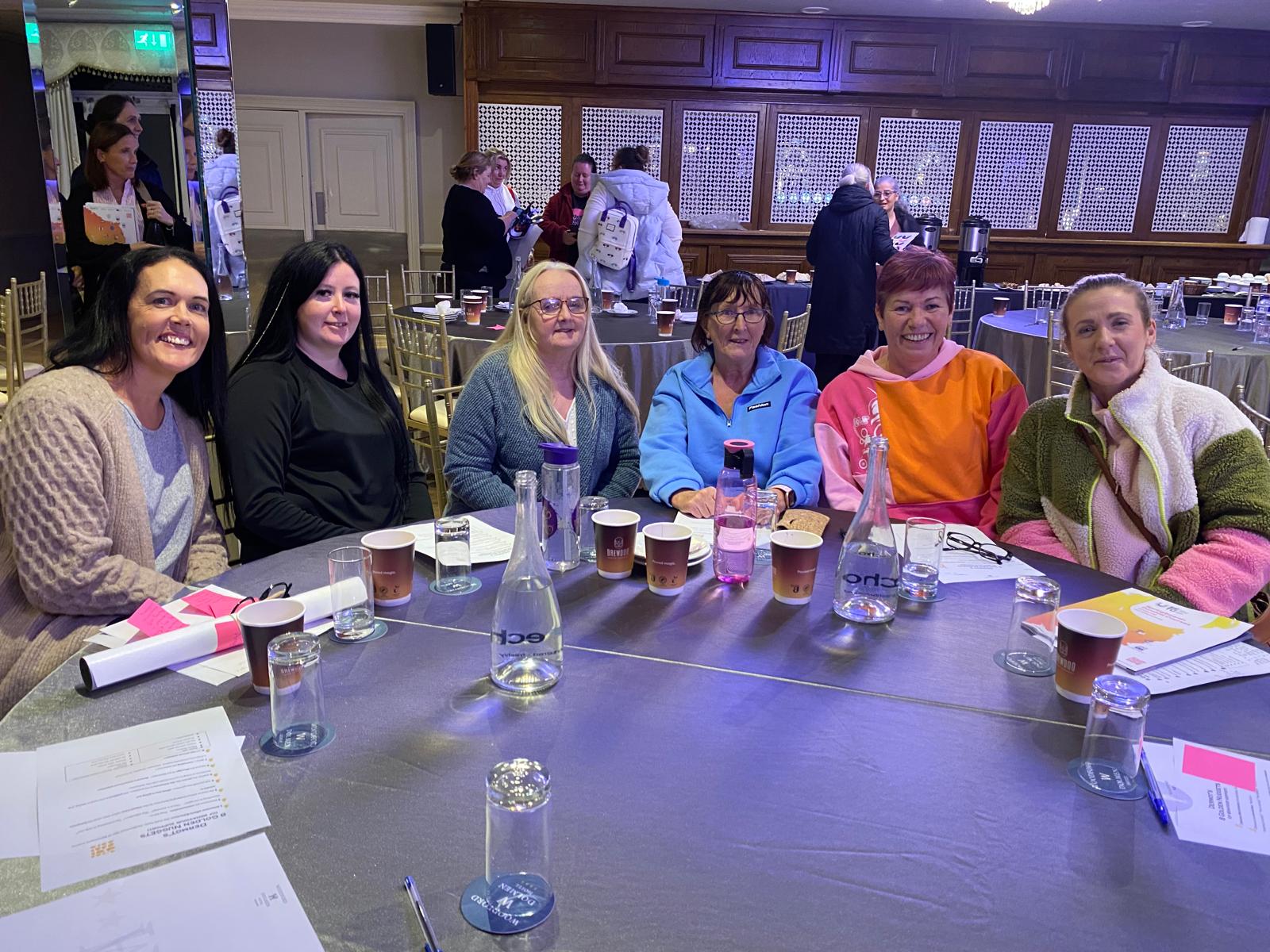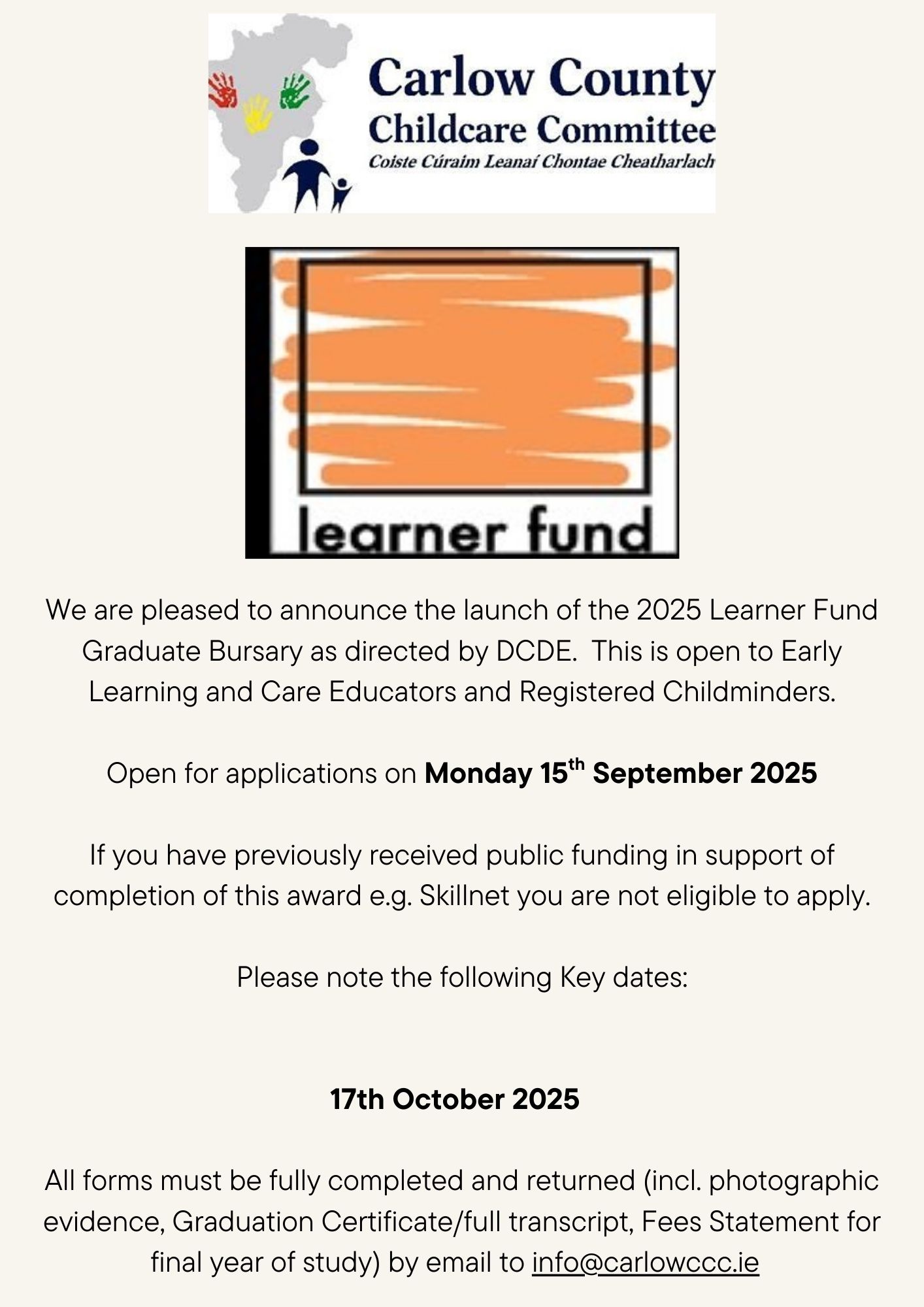Early Years Inspectorate Updates – October 2025
/in Uncategorized/by Carlow Childcare CommitteeTusla have published a new guidance video that was jointly developed with colleagues in the Department of Education and Youth Inspectorate. You can find the video both on the Early Years Inspectorate home page Early Years Inspectorate Tusla – Child and Family Agency and on our provider resources page Resources Tusla – Child and Family Agency
Inspections of Early Learning and Care settings
The short video and accompanying leaflet provide information on the different types of inspections and other types of work carried out by the Tusla Early Years Inspectorate and Department of Education and Youth (DEY).
Tusla have also updated a regulatory notice relating to the use of nappy bins in Early Years Services.
 EYI-RN12.1_EYI_Regulatory_Notice_Nappy_Bins_.pdf
EYI-RN12.1_EYI_Regulatory_Notice_Nappy_Bins_.pdf
Unprecedented investment in disability and children as Ministers Foley and Naughton announce total package of over €7 billion in Budget 2026
/in Uncategorized/by Carlow Childcare Committee- From: Department of Children, Disability and Equality
- Published on: 7 October 2025
- Last updated on: 7 October 2025
- €3.8 billion secured for the delivery of disability services in partnership with the HSE, an unprecedented 20% increase
- €1.48 billion investment in Early Learning and Childcare will reduce costs for families and increase supports for staff and providers
- Tusla, the Child and Family Agency, receives an increased budget of €165m to continue providing vital child welfare and family support services bringing its funding to over €1.3 billion.
Minister for Children, Disability and Equality, Norma Foley, and Minister of State with responsibility for Disability, Hildegarde Naughton, have announced a Budget 2026 package that supports the delivery of services to make life better and fairer for children, disabled people, and others who face inequality or discrimination.
This year’s budget sees over €3.8 billion allocated to Disability, just over half of all funding allocated to the Department.
Another €1.48bn has been allocated to Early Learning and Childcare funding in Budget 2026.
The allocation for Tusla, the Child and Family Agency, stands at €1.336bn. This brings the overall figure allocated to the Department of Children, Disability and Equality in Budget 2026 to €7.04bn, which is a 15% increase on Budget 2025.
Minister Foley said:
“A key focus for me in Budget 2026 was to make progress on delivering the step change for disabled people promised in the new National Human Rights Strategy for Disabled People. Our job is to improve their lives, working towards a society where everyone has equal voices, equal actions and equal futures.
This Budget also makes important progress on reducing the cost of early learning and care for families while also supporting early years educators and providers to deliver high quality services for children.
There is additional funding to support the important child welfare and child protection work carried out by Tusla.
This increased funding in Budget 2026 will deliver vital services that make a meaningful difference to the lives of children, disabled people, and vulnerable groups who need support.”
Minister Naughton said:
“When this Government took office last January, we promised a step change in the delivery of supports and services for people with disability and their families. Budget 2026 is the first step in delivering on this ambition. Some €3.83 billion will be provided to specialist disability services next year, an unprecedented increase of €618 million, or almost 20%. The blueprint for our spending decisions will be the National Human Rights Strategy for Disabled People which was published just over a month ago. As a Government we believe that disabled people should be able to access the right services, at the right time, and within their communities. Budget 2026 is the first step in making that a reality.”
The largest portion of funding in this year’s budget will be allocated to the delivery of disability services, where Government has committed to a step change.
€2.21bn of the funding secured will enable the Department to deliver residential services for over 9,000 disabled people, enabling them to live as independently as possible in their local communities.
Funding for day and night respite available to support disabled people and their families has been increased in this Budget to provide over 10,000 extra nights and 15,000 further day sessions. In addition, funding will be provided to expand home sharing services as a viable respite alternative.
€10m in funding has been secured to support the transition of people under the age of 65 currently residing in nursing homes and an additional €3m for the development and continued expansion of community neurorehabilitation teams.
Day services for over 22,000 disabled people will be expanded in Budget 2026 with an additional €24.5m providing approximately 1,400 new places for disabled students leaving school. Budget 2026 will, for the first time, also enable a cohort of in the region of 50 older adults to avail of Day Services. Day Services are ordinarily offered to school leavers or those leaving rehabilitation training and so this new departure is important as it gives people options later in life and as their circumstances and wishes change. This includes people who may acquire a disability.
Furthermore, this year’s budget will ensure that 10,000 people can avail of 5.5 million Personal Assistance or Home Support hours.
Upwards of 40,000 staff in both the HSE and community and voluntary organisations will be supported to deliver their vital roles. Funding has been secured for the increased pay for staff in Section 39 agencies and other voluntary organisations covered by the recent pay agreement reached at the Workplace Relations Commission.
Investment in children’s disability services will provide therapy services and other specialised supports, for approximately 45,000 children through local Children’s Disability Network Teams thanks to over 2,000 dedicated staff. Budget funding has been secured to recruit 150 additional staff for Children’s Disability Network Teams.
Funding of €20m is also being provided for the continued support of the Assessment of Need Targeted Waitlist Initiative through the provision of up to 6,500 clinical assessments.
The Government is committed to ensuring access to affordable, quality early learning and childcare, with an investment of €1.48bn in this budget to build on the progress made in recent years.
The National Childcare Scheme, which has over 250,000 children currently enrolled, will be funded to support an additional 35,000 children next year, representing a 14% increase in children benefitting.
Out of pocket costs for early learning and childcare have reduced by 36% since 2022. The allocation for Core Funding in 2026 will ensure fees remain at 2021 levels for a majority of providers. As well as this, there will be a new maximum fee cap set to reduce costs for families paying the highest fees across the country, building on recent progress in this area. Further details of the maximum fee cap will be announced in the coming months.
The 2026 allocation for Core Funding will also support implementation of the recently announced Employment Regulation Orders (ERO) – that will lead to a 10% increase in the minimum rate of pay for educators from 13 October.
It is intended to support further pay increases for staff in the sector through ring-fenced funding being made available in 2026 to support a new employment regulation order, subject to the deliberations of the independent Joint Labour Committee.
All of this will form part of the new Action Plan on Early Learning and Childcare, due for publication in the coming weeks.
This Budget provides further funding for Tusla, the Child and Family Agency, which has responsibility for safeguarding and supporting some of the most vulnerable children in our society.
Following Budget 2026, Tusla’s overall funding now stands at €1.371bn, an increase of 14% over its budget in 2025. This money will ensure that Tusla can continue to manage over 100,000 referrals annually, stepping in when needed to support tens of thousands of children and families around Ireland.
Tusla will also use this allocation to continue investment in providing safe, secure family environments to vulnerable children and this funding will provide enhanced supports such as placement breakdown prevention.
Tusla also plans to invest €286m in expanding residential care, increasing the number of placements for children in need to over 800 next year. €6m in new funding is being provided in Budget 2026 for innovative “earn and learn” social work and social care work apprenticeship courses programmes and sponsorship. This will increase the number of social workers and social care workers in Tusla to over 3,200.
There is €26m in Budget 2026 to ensure that all 26 special care beds can be opened and available for vulnerable children by the end of 2026. This investment will facilitate this by funding new special care staff grades, staff wellbeing initiatives and special care therapeutic supports in 2026.
Funding of has also been secured for the reform of the Guardian ad litem national service. Guardians ad litem play a vital role in gathering the views of children in care proceedings and making recommendations to the court on their best interests.
Approximately 3,500 children are currently appointed a Guardian ad litem in care proceedings. This funding will enable the new Guardian ad litem National Service to appoint over 65 Guardians ad litem, ensuring that the voices and rights of children are upheld at every stage of a responsive and accountable system for care proceedings.
Funding is being allocated to implement national equality strategies and to support programmes aimed at addressing disadvantages for women and girls, Travellers and Roma and LGBTIQ+ people. This includes funding for equality, rights and child and youth participation during Ireland’s EU Presidency in 2026.
Ireland is a world-leader on child and youth participation. The funding secured for 2026 will enable children and young people across Ireland to have their voices heard on key decisions affecting them. Funding will also be available to highlight and support the right of all children to enjoy play and recreation, whether they are small children, primary school age or teenagers.
Minister Foley concluded:
“This Department is responsible for delivering on three unique priority areas of Government – Tusla Child Protection and Family Support Services, Early Learning and Childcare Services, and Disability Services. There are increased numbers of people in need of these services and Budget 2026 will help us to deliver for them.
With over €7bn to be spent in the coming year, we will continue to work hard to make a real meaningful difference to the lives or all the people we serve.”
Notes to the Editor
KEY POINTS FROM THIS YEAR’S BUDGET:
Disability
- €2.21bn of the funding secured will enable the Department to deliver residential services for over 9,000 disabled people, enabling them to live as independently as possible in their local communities.
- Budget to provide over 10,000 extra nights respite and 15,000 further day respite sessions. In addition, funding will be provided to expand home sharing services as a viable respite alternative.
- €10M in funding has been secured to support the transition of people under the age of 65 currently residing in nursing homes
- Day services for over 22,000 disabled people will be expanded in Budget 2026 with an additional €24.5M providing approximately 1,400 new places for disabled students leaving school.
- Investment in children’s disability services will provide therapy services and other specialised supports, including therapy services, for approximately 45,000 children through local Children’s Disability Network Teams thanks to over 2,000 dedicated staff.
- Budget funding has been secured to recruit 150 additional staff for Children’s Disability Network Teams.
- Funding of €20M is also being provided for the continued support of the Assessment of Need Targeted Waitlist Initiative through the provision of up to 6,500 clinical assessments.
Childcare
Early Learning and Childcare will see its allocation increase to €1.48 billion, an increase of €125 million or 9%. In 2026, this will ensure:
- Over 286,000 individual children benefit from the National Childcare Scheme, an increase of approximately 35,000 children or 14% over 2025.
- Over 105,000 children benefit from the universal Early Childhood Care and Education (ECCE) programme.
- Approx. 8,400 children with a disability can access and meaningfully participate in the ECCE programme through the Access and Inclusion Model (AIM) and ensure the full expansion of AIM to ECCE-age children beyond time spent in the ECCE programme (both in term and out of term), as well as a 10% increase in the capitation rate for AIM Level 7, which will be introduced from October 2025..
It will also support:
- Continued implementation of year 4 of Core Funding and introduction of enhancements in year 5 of the scheme, including capacity growth of 4.2%, maintenance of fees at 2021 levels for a majority of providers and further reductions on the maximum weekly fee cap. Core Funding will also support improved pay for educators and school-age childcare practitioners with implementation of the 2025 Employment Regulation Orders and further orders in 2026.
- Continued roll-out of Years 2 and 3 of Equal Start measures including staffing supports, supports for participation of Traveller and Roma children in early learning and childcare, and targeted language delay (Early Talk Boost) and literacy measures (Little Library).
- As part of Equal Start, full year support for the Bia Blasta Preschool Nutrition Programme introduced in October 2025, in addition to the development and roll-out of Family Community Partnership Coordinator training, and the development and delivery of updated Diversity, Equality and Inclusion guidelines and training.
Child Protection and Wellbeing
- Total funding for Tusla in Budget 2026 will be €1.336bn in addition to €35m of capital funding.
- Funding of €286m in Budget 2026 will increase the number of residential care placements for children in need to over 800 in 2026. This will increase capacity and reduce the use of expensive Special Emergency Arrangements (SEAs). Tusla funding of €152m will be used to maintain and grow foster care capacity and expanded the foster carer peer support programme and foster care recruitment teams.
- €8.5m in Budget 2026 has been allocated to an expansion of ongoing social work and social care work apprenticeship programmes. This means an additional 50 social work apprentices and 100 social care work apprentices to be recruited in Sept 2026.
- €26m will be invested in new special care staff grades, staff wellbeing initiatives and special care therapeutic supports. This should enable Tusla to make the full complement of 26 special care beds available by the end of 2026.
- Additional funding of €3.2m in Budget 2026 will increase baseline funding for all 126 FRCs up to €180k per year and add an additional ten new centres. This is a €20k (12.5%) increase from the current baseline funding level of €160k.
Guardian ad litem National Service
- Grounded in national and international legal frameworks, the Guardian ad litem National Service was launched in June 2025, following extensive consultation and legislative development under the Child Care (Amendment) Act 2022.
- Funding will enable the appointment of over 65 Guardians ad litem (GALs). These GALs will advocate for the approximately 3,500 children who are currently appointed a Guardian ad litem in care proceedings.
- The new Service introduces clear national standards, consistent practice, and timely access to a Guardian ad litem wherever directed by the courts.
Equality / Participation
- Funding of €2m will enhance the lives of LGBTIQ+ people in Ireland by supporting the implementation of actions under the National LGBTIQ+ Inclusion Strategy II 2024-2028. This includes support for LGBTIQ+ civil society organisations with a 6% increase in funding for the 2026 LGBTIQ+ Community Services Fund.
- €6.8m has also been allocated to implement the National Traveller and Roma Inclusion Strategy II 2024-2028. This includes funding for new initiatives to support Travellers into education and employment to celebrate Traveller and Roma culture and heritage.
- Funding is being allocated to promote equality for women and girls. This includes funding to implement the successor to the National Strategy for Women and Girls. New initiatives include the opening of the gender pay gap portal into which companies will report their gender pay gap.
- Funding is being provided to operate the national programme of child and youth participation. This will facilitate children and young people to participate in decisions affecting their lives. It will also support the right of all children and young people to enjoy play and recreation through targeted projects that require their direct input when spaces and facilities are being planned.
- €10.5m is being provided to the Irish Human Rights and Equality Commission to continue its work to maintain Ireland’s national rights infrastructure.
New Employment Regulation Order for Early Years Educators and School-Age Practitioners – Ministers Dillon and Foley.
/in Uncategorized/by Carlow Childcare Committee- From: Department of Children, Disability and Equality
- Published on: 3 October 2025
- Last updated on: 3 October 2025
10% average increase in minimum hourly rates of pay for an estimated 35,000 Early Years Educators and School-Age Childcare Practitioners.
Minister of State for Employment, Small Business and Retail Alan Dillon has confirmed he intends to sign a new Employment Order for Early Years Educators and School-Age Practitioners.
The Order will revoke the 2024 Order currently in operation for the sector and will commence on 13th October 2025. It will provide for increases in new minimum hourly rates of pay as follows:
- Early Years Educators and School Age Childcare (SAC) Practitioners – from €13.65 currently to €15.00 per hour;
- Early Years Lead Educators (Room Leaders) and School Age Childcare (SAC) Coordinators – from €14.70 currently to €16.00 per hour;
- Early Years Graduate Lead Educators (Room Leaders) and Graduate School Age Childcare (SAC) Coordinators – from €16.28 currently to €17.50 per hour;
- Deputy/Assistant Manager – from €16.49 currently to €18.00 per hour;
- Centre Manager -from € 17.33 currently to €19.00 per hour;
- Graduate Centre Manager from €18.11 currently to €20.25 per hour.
The Employment Regulation Orders apply to approximately 35,000 staff in the Early Years and School-Age Childcare sector. While around one third of staff are already being paid above the current minimum rates of pay, it is estimated that 67% (23,000 approximately) of those working in the sector will see their wages increase as a result of the new minimum pay rates.
An additional €45 million in ring-fenced Core Funding will be provided to support early learning and care services in meeting the increased cost of minimum pay rates in the sector
This will bring total Core Funding for services to over €390 million in the 2025/26 programme year.
Minister Dillon said:
“I am very pleased to approve these Employment Regulation Orders that will increase the hourly pay rates of approximately 35,000 staff in the Early Years and School-Age Childcare. This is recognition of the vital role Early Years and School-Age Childcare professionals provide to our society. Those working in the sector provide an outstanding service to infants and children while offering invaluable support to the trust that families place in them every day. This government is committed to building a sustainable, high-quality childcare sector by ensuring fair pay and conditions. This new ERO is a clear commitment to the continued investment in the professionals caring for our children.”
Minister for Children, Disability and Equality, Norma Foley has welcomed Minister Dillon’s acceptance of the Early Years Services Employment Regulation Orders as they will deliver improved pay and conditions, will support career pathways, and will help to support the recruitment and retention of early years educators and school-age childcare practitioners.
“I warmly welcome the adoption of these Employment Regulation Orders, which represents a much-needed improvement in pay and conditions for early years educators and school-age childcare practitioners.
The Department of Children has ringfenced €45 million in Core Funding for early learning and care services to make these Employment Regulation Orders a reality. I welcome the fact that this funding will be used solely for improved pay for early years educators and school-age childcare practitioners, who are a hugely significant resource in the delivery of excellence in the early learning and care sector.
“I would like to acknowledge the independent nature of the Labour Court and Joint Labour Committee process and the hard work of its members in negotiating the pay and conditions for the early learning and childcare sector. I look forward to seeing further positive negotiations from this process in the future.”
In the 2025/2026 programme year, a new pay element of the grant calculation, the Staff Funding Additional Contribution, will be introduced to centre-based Partner Services to facilitate the distribution of the €45 million in ringfenced funding.
This new element of Core Funding will support Partner Services to meet the costs of increasing rates of pay as a result of the new Employment Regulation Orders. The rate at which the Staff Funding Additional Contribution is to be paid was agreed upon during the Joint Labour Committee’s negotiation phase.
The Government will continue to deliver on the Programme for Government commitment to implement Employment Regulation Orders to attract and retain early years educators.
Notes for editor
The first Employment Regulation Orders for the sector were introduced in September 2022 and provided a wage structure for the Early Learning and School-Age Childcare Sector.
A second round of Employment Regulation Orders in June 2024 represented a further improvement in pay for approximately 53% of the sector.
This third round of Employment Regulation Orders will provide additional stability, better staff retention rates, and improved pay and conditions for this workforce.
These Employment Regulation Orders amend the 2024 Employment Regulation Orders for the sector which commenced on 24 June 2024 – SI No 458 of 2022 Employment Regulation Order (Early Years’ Service Joint Labour Committee) Order No 2 2022
ENDS
Minister Foley announces that €150,000 parent peer support fund is now open for applications
/in Uncategorized/by Carlow Childcare Committee- From: Department of Children, Disability and Equality
- Published on: 30 September 2025
- Last updated on: 30 September 2025
The Minister for Children, Disability and Equality, Norma Foley, has today announced that a €150,000 parent peer support fund is now open for applications.
Parent peer support is when parents support each other by sharing knowledge, reducing feelings of isolation, and providing encouragement to navigate challenges and achieve well-being.
Grants of up to €5,000 can be provided to organisations working with parents and/or carers to support them to develop parent peer support initiatives. This includes peer support for parents who share similar life experiences, such as raising a child with complex needs or a mental health condition.
Speaking today Minister Foley commented:
“I am delighted to launch the 2025/26 Parent Peer Support Fund. Parents supporting parents can have real benefits for families. It is clear to see the value this funding brings to the numerous organisations working with parents and carers around the country.”
The introduction of the Parent Peer Support Fund builds on commitments set out in Supporting Parents: A National Model of Parent Support Services, through the provision of funding for the enhancement and promotion of supports to assist parents.
Last year, a total of €100,000 was distributed among 42 organisations under the Parent Peer Support fund. The funding was awarded to a variety of parent peer support projects in organisations across Ireland. This included projects with a focus on domestic violence, kinship care, breast-feeding, disability and migrant supports among others.
The Parent Peer Support fund will be made available under two tiers of funding.
- Tier 1 will provide grants of €2,500 to 37 successful applicants who either currently operate or wish to establish a new parent peer support project.
- Tier 2 will provide grants of €5,000 to 12 successful applicants who wish to scale up an existing parent peer support project, which is already having a positive impact on parents.
How to apply
Application forms for the €2,500 and €5,000 funding tiers, along with the funding Guidance and Terms and Conditions can be found here.
Applications must be submitted by Friday 31 October 2025.
For enquiries please contact:
Minister Foley welcomes over 700 Early Years Educators attending subsidised upskilling courses this month
/in Uncategorized/by Carlow Childcare Committee- From: Department of Children, Disability and Equality
- Published on: 29 September 2025
- Last updated on: 29 September 2025
Minister for Children, Disability and Equality, Norma Foley, has welcomed over 700 early learning educators who are receiving state subsidised degree-level courses in Early Learning and Care this month.
The Nurturing Skills Learner Fund is covering 90 per cent of the course fees for the early years educators who undertake a degree course. They can study the course over a three-year period while continuing their regular daily work within the early learning and care sector.
365 early year educators are receiving funding to begin their degree-level courses in Early Learning and Care this September, while 350 early years educators in the second and third year of their courses are being funded to continue their studies.
Current data indicates that the proportion of early years educators with a relevant degree-level qualification has more than tripled, from 12% in 2012 to 39% in 2024.
There is an official target to increase the proportion of early years educators with a relevant degree-level qualification to at least 50% by 2028. This reflects the Government objective of achieving a graduate-led workforce in early learning and childcare services by 2028.
Speaking today, Minister for Children, Disability and Equality, Norma Foley, said:
“I would like to wish all those who are on Early Learning and Childcare courses very best of luck with their studies especially those early years educators in receipt of support from the Nurturing Skills Learner Fund. There are very talented and dedicated educators working in the early years sector. I am keen to provide them with opportunities for upskilling because it will enhance the quality of care and education provided to children across Ireland.”
First 5, the whole-of-government strategy for babies, young children and their families, recognises that the workforce is at the heart of high-quality early learning and care sector.
The Department of Children, Disability and Equality introduced the Nurturing Skills Learner Fund on a pilot basis in 2024. It is aimed at early years educators seeking to upskill by studying for a recognised Early Learning and Care qualification at Level 7 or 8 on the National Framework of Qualifications.
The Nurturing Skills Learner Fund aims to enhance the quality of Early Learning and Care services, while supporting the professional development of early years educators, developing career pathways, and supporting recruitment and retention of staff in the sector.
The objective of delivering a graduate-led workforce in early learning and childcare is contained in Nurturing Skills: The Workforce Plan for Early Learning and Care and School-Age Childcare 2022 – 2028.
The Nurturing Skill Learner Fund is co-funded by the European Union through the European Social Fund+ and by the Government Ireland through the Employment, Inclusion, Skills and Training programme (EIST) 2021-27.
It is designed to complement and add to other Government financial supports, such as the Free Fees Initiative and SUSI grants. Funding is provided directly to approved Higher Education Institutions to reduce the upfront costs of studying for early years educators.
Further information on the Nurturing Skills Learner Fund can be found at www.gov.ie/NurturingSkillsLearnerFund


Minister Foley announces expansion of the ‘Early Talk Boost’ programme to tackle language delay among young children
/in Uncategorized/by Carlow Childcare Committee- From: Department of Children, Disability and Equality
- Published on: 25 September 2025
- Last updated on: 25 September 2025

Minister for Children, Disability and Equality, Norma Foley, has announced that a programme which tackles language delay among young children is set to expand this month with the recruitment of up to 50 additional tutors.
The Early Talk Boost programme is already helping children in 108 early learning and care settings across 18 counties.
It is now set to expand to more early learning and care settings from September, supported by the recruitment of up to 50 additional tutors.
Children who take part in the programme attend three sessions per week for an 8-week period, in groups of up to eight children. Sessions take place in the children’s own early learning and care setting during circle/story time, with each session lasting 15-20 minutes.
Partnership with parents is a key aspect of the programme. Parents get an Early Talk Boost pack made up of eight story books which they share with their child at home as part of reinforcing the language skills learned during the preschool sessions. Parents also attend a workshop facilitated by the early years educators in the setting, where they describe the programme and how to share and use the Early Talk Boost story books at home.
Minister for Children, Disability and Equality, Norma Foley, stated:
“Early Talk Boost is a great programme to improve language skills among young children at risk of disadvantage. It is very positive to continue the rollout of this programme, so that it reaches the children most in need at such an important stage of their language development. I am also very pleased to hear that parents have enjoyed reading the Early Talk Boost books with their children at home.”
The rollout of Early Talk Boost is a key action of Equal Start, which provides universal and targeted measures for children at risk of disadvantage to support their access and participation in early learning and care and school-age childcare.
Early years educators in priority settings are being trained to deliver this programme to children in their setting by Better Start Specialist tutors, Early Years Mentors within the Area Based Childhood (ABC) Programme and HSE tutors, supported by a HSE super tutor.
Counties with settings trained to deliver Early Talk Boost to date include Carlow, Cavan, Clare, Cork, Donegal, Dublin, Galway, Kilkenny, Laois, Limerick, Longford, Louth, Mayo, Tipperary, Waterford, Westmeath, Wexford, Wicklow. Training is also due to be delivered to services in Kerry and Kildare in the coming weeks.
Yvonne Galvin of ‘Our Lady of Lourdes Childworld Creche’ in Limerick, who has delivered Early Talk Boost in her own setting, said:
“Early Talk Boost has been such a welcome addition to our service. We have been able to train our staff and run the programme here in the setting, giving children the chance to engage with the intervention, in a place where they feel they belong.”
Ms Galvin also noted:
“What really stood out for us was how the programme involved parents. The take-home books and activities made it easier for families to join in with their child’s learning at home. Parents have told us that these small, everyday moments of reading and playing together have made a real difference, and it’s lovely to see the same strategies being used both at home and in the setting.
We’ve noticed children becoming more confident, using more words, and engaging in play and conversations in new ways.
As a team, the training has given us more confidence and practical tools that we can use every day.
It has empowered parents, and most importantly, supported children’s speech and language at a stage when it makes the biggest difference.”
Early learning and care settings based in areas of concentrated disadvantaged have been prioritised in the initial rollout phase of Early Talk Boost .
Notes
List of the Counties with settings that have already delivered Early Talk Boost to children:
| County | No. of settings that have delivered Early Talk Boost |
| Carlow | 2 |
| Cavan | 1 |
| Clare | 2 |
| Dublin | 47 |
| Galway | 5 |
| Kilkenny | 1 |
| Laois | 3 |
| Limerick | 22 |
| Longford | 3 |
| Louth | 4 |
| Mayo | 2 |
| Tipperary | 6 |
| Westmeath | 4 |
| Wexford | 1 |
| Wicklow | 5 |
| 108 |
National Síolta Aistear Initiative
/in Uncategorized/by Carlow Childcare Committee- From: Department of Children, Disability and Equality
- Published on: 15 September 2025
- Last updated on: 15 September 2025
The National Síolta Aistear Initiative (NSAI) was established in 2016 to support the coordinated roll-out of Síolta and Aistear, the national quality and curriculum frameworks for the early learning and care sector.
This is a collaborative initiative designed to integrate Síolta and Aistear, supporting Early Learning and Care settings to deliver high-quality learning experiences for babies, toddlers, and young children. Educators across Ireland can access professional development, mentoring, and practical resources.
It is led by the Department of Children, Disability and Equality in partnership with national agencies and is implemented through a coordinated nationwide approach.
Early Years Specialists from Better Start – the National Early Years Quality Development Service, work closely with City and County Childcare Committees, which provide local-level supports, to deliver support to service providers.
Early years educators can access:
• On-site mentoring
• Tailored workshops
• And practical tools to explore child-led learning, play, and quality interactions.
At the heart of the initiative is the Aistear Síolta Practice Guide – an online resource that brings both frameworks together in a practical and user-friendly way.
It offers suggestions, examples, and reflection tools to help educators apply the frameworks to their daily practice.
If you have any queries or would like further information on the NSAI please contact nsai@betterstart.ie
Organisations that support the NSAI include:
Department of Children, Disability and Equality, (DCDE),
Department of Education and Youth (DEY),
Better Start National Early Years Quality Development,
National Council for Curriculum and Assessment (NCCA),
City and County Childcare Committees (CCCs) and
National Voluntary Childcare Organisations (NVCOs)
Minister Foley welcomes 9 in 10 early learning and childcare services into Core Funding for fourth year.
/in Uncategorized/by Carlow Childcare Committee- From: Department of Children, Disability and Equality
- Published on: 15 September 2025
- Last updated on: 15 September 2025
- Over 4250 services have now applied for the fourth year of Core Funding, committing to work in partnership with the State to deliver early learning and childcare for the public good.
- Applications remain open for the scheme, which is worth €390 million to the sector.
- Maximum fee caps will apply to the very highest fees charged by Core Funding Partner Services, reducing costs for parents facing the highest fees across the country.
- Fee freeze will remain in place for Core Funding Partner Services with fees below the maximum fee caps.
- New funding element, the Staff Funding Additional Contribution, will distribute ringfenced funding secured in Budget 2026 for improved pay.
Norma Foley, Minister for Children, Disability and Equality, today announced that 89% of Early Learning and Care (ELC) and School-Age Childcare (SAC) services have signed up for the fourth year of Core Funding to date.
For the fourth programme year of Core Funding, which runs from September 2025 to August 2026, over €390 million in funding has been made available to early learning and childcare services, which represents an increase of over €60 million (18%) on the third programme year.
It is expected that 90% of services will have completed their sign up to Core Funding in the coming days. The 90% uptake rate is consistent with previous years of Core Funding, and services can sign up to the fourth year of the scheme at any point over the course of the programme year.
This year the scheme will continue to support affordability for parents while also ensuring improved quality and sustainability of Partner Services. To further these objectives, the initial cap on high fees introduced in the 2024/2025 programme year for First-Time Partner Services has been incrementally reduced and extended to all new and existing Partner Services from September 2025.
A new funding element, the Staff Funding Additional Contribution, was introduced in Year 4 in support of services meeting the cost of increased minimum pay rates in the sector as a result of new Employment Regulation Orders (EROs) negotiated by the Joint Labour Committee.
Alongside the increased Core Funding allocation of €390 million, services facing sustainability challenges can continue to avail of supports through the Department’s established case management process. This involves local City and County Childcare Committees and Pobal working together to assess and provide support including financial support to services experiencing difficulties.
Welcoming the news, Minister Foley said:
“I am delighted that almost 90% of services have already chosen to come into partnership with the State by applying for the fourth year of Core Funding. Widespread uptake of Core Funding will ensure that more services will benefit from the additional €60 million investment in State funding, while guaranteeing that affordability measures are passed on to the largest number of families. This is a significant step towards achieving my commitment to progressively reduce the maximum payment by parents to €200 per child per month for early learning and childcare in the lifetime of this Government.”
The Minister added:
“I look forward to working in partnership with these services in the coming year to achieve great things for the sector and build on the successes of the Together for Better funding model.”
For more information on Core Funding, including a list of Partner Services and allocations for previous programme years, please visit: Core Funding
CONTACT US
Enterprise House
O'Brien Road
Carlow
Tel: 059-9140244
Email: info@carlowccc.ie
